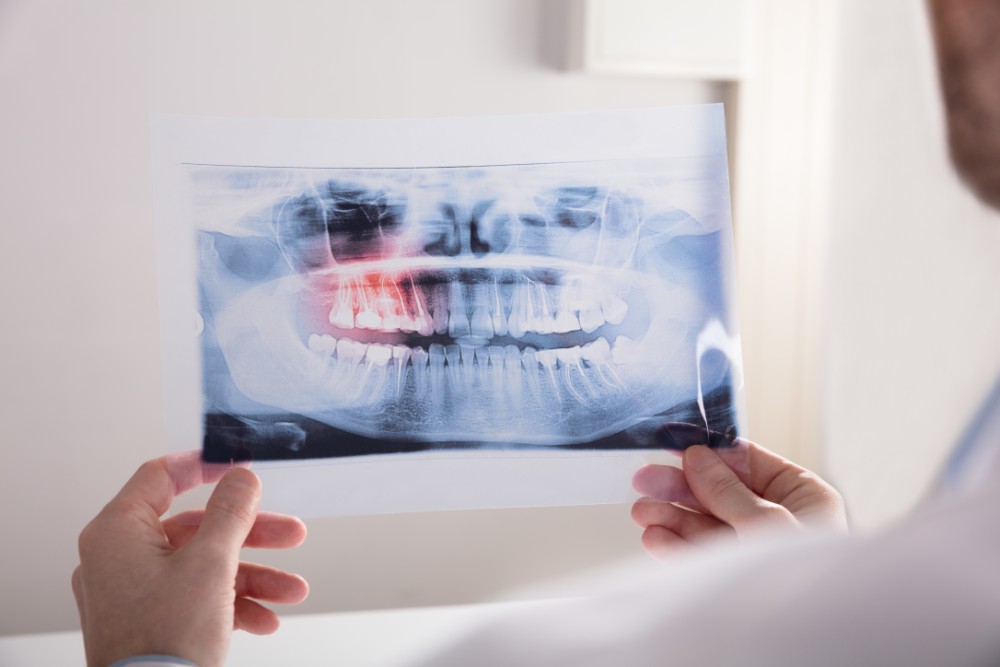

Wisdom teeth, or third molars, are the last teeth to develop in the jawbone. They usually begin to erupt between the ages of 17 and 25. However, the adult jaw is typically done growing by age 18. This means there is not enough room for the wisdom teeth to fully erupt into the mouth, leaving many people with impacted wisdom teeth. 9 out of 10 patients have at least 1 wisdom tooth that needs extracted; this is according to the American Association of Oral and Maxillofacial Surgeons.
Why do wisdom teeth need to be removed?
When the wisdom teeth are impacted several problems can occur. Because they are the last teeth to come in, if there is no room, they can put pressure on teeth that are already erupted causing crowding. They start to grow into the mouth sideways, this usually means the tooth will not erupt standing up correctly, causing misaligned teeth. When the tooth comes in sideways they almost always get “stuck” and only partially erupt.
Wisdom teeth can cause jaw pain and sore and infected gums when they begin to erupt. If they only partially erupt, wisdom teeth have a high risk of trapping bacteria, causing tooth decay and gum infection. In rare cases, a cyst will develop around the wisdom teeth. This can erode the jawbone and other teeth near the cyst. When there is decay, infection or a cyst, there is no question, the teeth need to be removed. This is why most dentists and oral surgeons recommend early evaluation of developing wisdom teeth and preventive extraction before they begin to erupt.
What to expect with the surgery.
Your dentist or oral surgeon at Dental Design will remove wisdom teeth. Most general dentists who are comfortable with extractions will remove wisdom teeth if the patient does not need to be fully sedated, or put completely to sleep. However, the severity of the impacted teeth, decay, or cyst will also be considered. Your dentist will let you know if they are confident or not with the case and recommend what is best for you. More often than not, general dentists will refer the patient to an oral surgeon for wisdom teeth extractions.
Extractions are preformed in the dentist or oral surgeons office. A local anesthetic is given to numb the mouth. If more than one tooth needs extracted, sedation may be recommended to ease anxiety and make the patient more comfortable. If you opt to be put to sleep, the doctor will go over pre and post operative instructions like not eating or drinking anything 8 hours before the procedure. The actual procedure will only take 45 minutes to an hour. But the time in the office is longer in order to monitor the patient’s vitals and go over post-op instructions.
What to expect after the surgery?
After surgery, recovery varies from person to person. Depending on the severity of the case, position of the teeth, impacted or not – recovery can be easy to difficult. The jaw can be bruised and sore because of the location of the wisdom teeth. Your face may swell and eating will be difficult for a few days after the surgery. A soft diet will be reviewed with you after the surgery. For pain, doctors usually recommend staying on top of over the counter pain medications like ibuprofen and acetaminophen.



